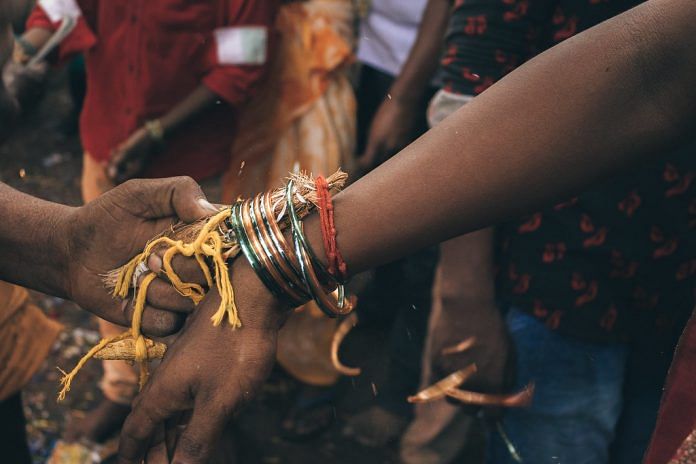Our revered Supreme Court is soon about to tell us what the meaning of the word “marriage” is. I know that many fashionable lawyers arguing before the bench will say that the past is irrelevant. The top court needs to be future-oriented. It is, in fact, duty-bound to expand and alter inherited traditions. According to these worthy advocates, the court is required to jettison the wisdom of our ancestors because our ancestors were stupid and unaware of the modern rights-based weltanschauung. Any two humans can and should be able to marry. And, of course, they should then be allowed, indeed encouraged, to bring forth or adopt children. Such a “right” should be established by the Supreme Court. If elected legislators are not enlightened and are pusillanimously endorsing popular ideas, then the court is obliged to enact the unpopular but politically correct stance. It may very well buy into the vociferous arguments of these so-called liberal advocates. After all, everyone likes to play God. And why should the court not succumb to this temptation?
At the risk of being categorised as a fascist fuddy-duddy and being completely ignored as a low-IQ bigot, I would like to offer some counters on behalf of conservatives who say that not all our ancestors were fools and that there is considerable wisdom embedded in spiritual and religious traditions that are part of our human heritage; perhaps possessing greater weight than shrill demands for rights and assertions of certainty.
What religion tells us
The gospels tell us that the Saviour himself came to Cana and blessed the marriage of a man and a woman. Incidentally, it is also considered the site of the first miracle when water was turned into wine. The man, the woman and their guests were blessed with the wine of life, and the union received affirmation and benediction. For people of faith, irrespective of the name given to their faith, the Lamb of God himself blessing the act was sacred, and the vows made were imbued with the spirit of the eternal God.
In our country, on the day of their marriage, a man and a woman are considered divine incarnations. Every bride is a Meenakshi, and every groom is a Sundareshwara; every bride is a Padmavati, and every groom is a Venkateshwara; every bride is a Valli, and every groom is a Subramanya; every bride is a Rakhmabai, and every groom is a Vithala. When the bride crosses the threshold of her marital home, she kicks over a brass vessel filled with rice and jaggery, for she is the harbinger of prosperity – “Kanaka-sampannaam”, showered with gold. The parallels between Indic symbolism and the metaphor at Cana are striking.
In our country, every variation is possible, is permitted, and even encouraged. At the Koovagam temple in Tamil Nadu, every year, there is a festival where transgender persons ceremonially marry the Lord. But it is interesting to note that the marriage is treated as a one-day affair, not as a permanent sacrament. No procreation or adoption rights are conferred. While there is tolerance and even celebration of diversity, there is great clarity about the underlying meaning associated with human actions.
Also read: Dear retd judges, disagree as you may, but gay marriages do not invite your HIV phobia
Change should be measured, gradual
It is perfectly in order for consenting adults to have sex as they choose in the privacy of their bedrooms, but does that automatically make their relationship a long-term “marriage”? Is our current Supreme Court, which, with all due deference, is not omniscient, competent to overturn the very meaning of words that have been transmitted to us as part of our divine gift of language, passed on over generations, one might add? The argument that popular opinions should be ignored is a fatal one. To become enslaved by prevalent fashions and to ignore the opinions of the common “swain” would be catastrophic from the point of view of the great statesman and philosopher Edmund Burke.
It is nobody’s case that there should not be change in society. If this change is measured, gradual, voluntary and has broad public support, it will likely be a constructive, successful change. If it is a forced top-down change, bending to the most recent untested trends of thought, then it is the solemn obligation of the top court not just to bow to pressures, but to carefully weigh the tradeoff between the wisdom of our ancestors and the fashionable doctrine of the day. One can only hope that the court undertakes this task responsibly and is not tempted to cater only to the high-decibel propaganda of the group that wants to pretty much destroy all our sacred traditions.
Jaithirth Rao is a retired businessperson who lives in Mumbai. Views are personal.
(Edited by Zoya Bhatti)



